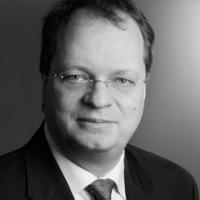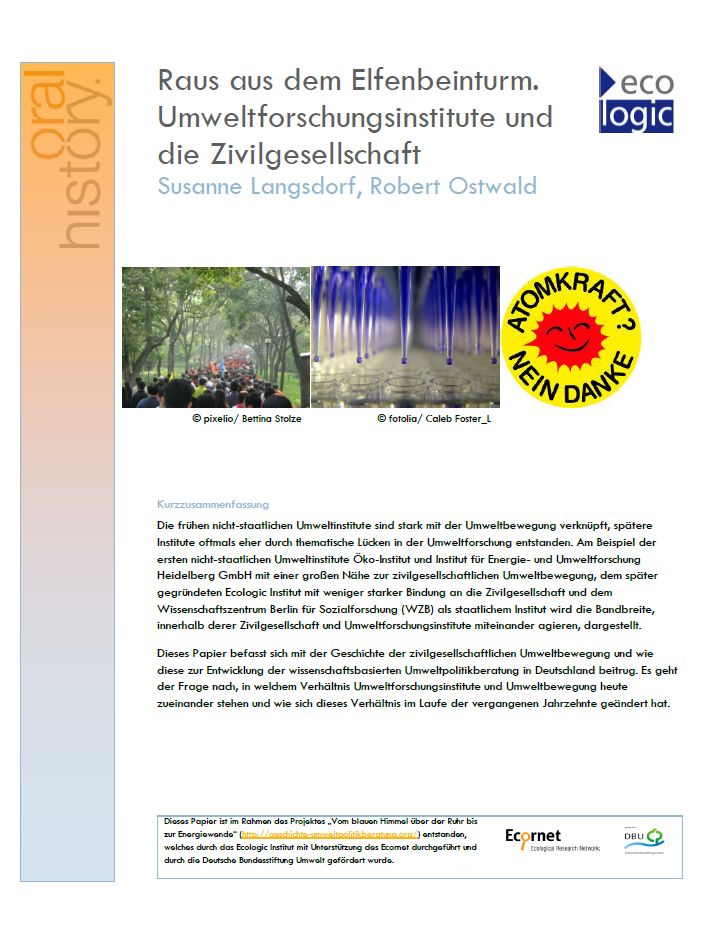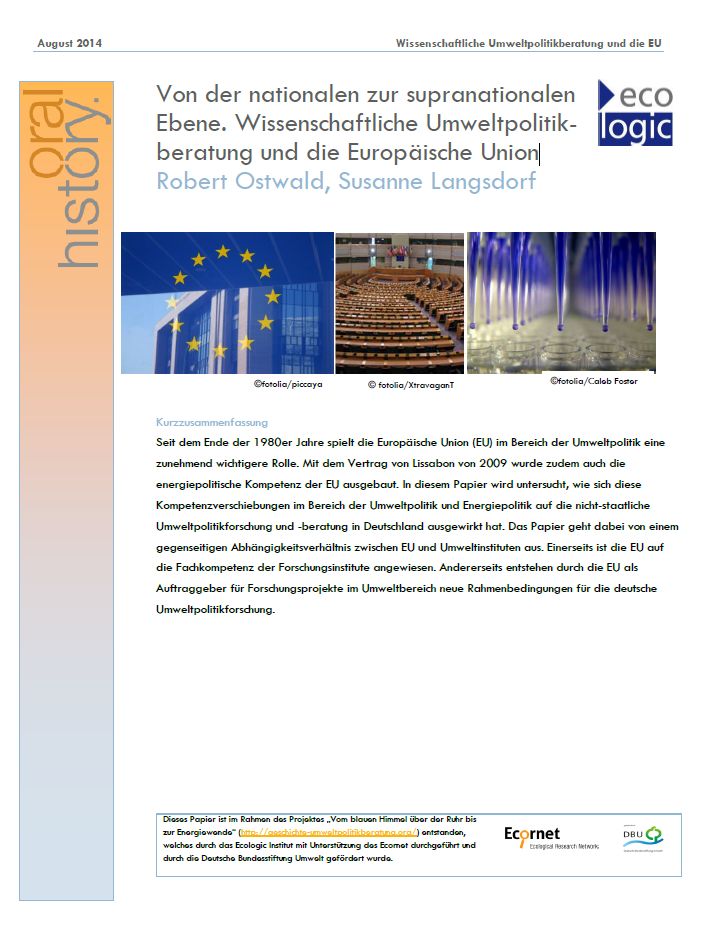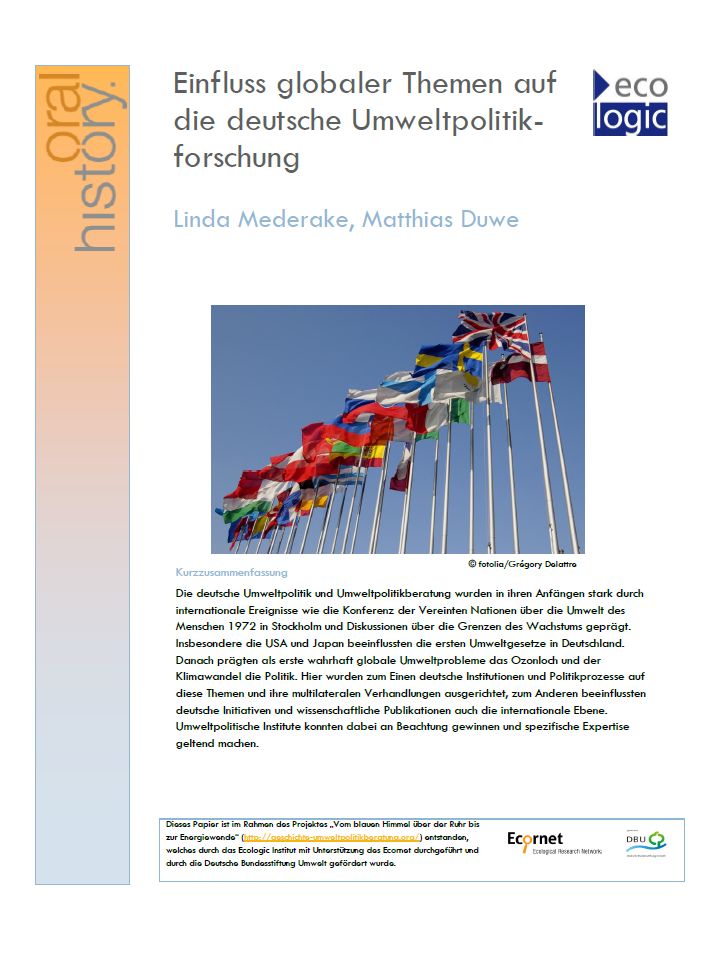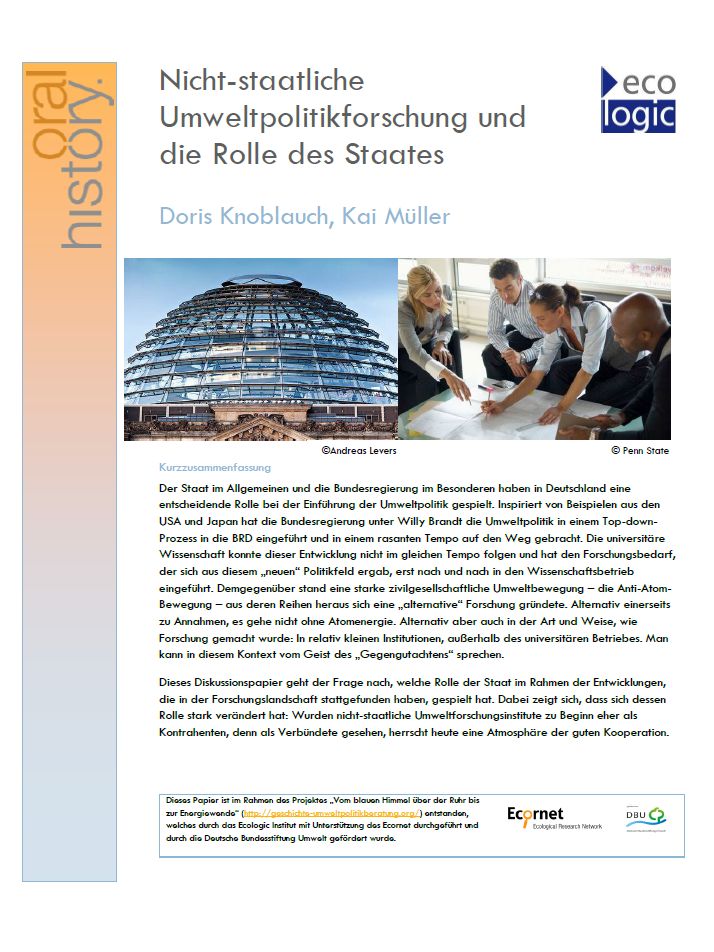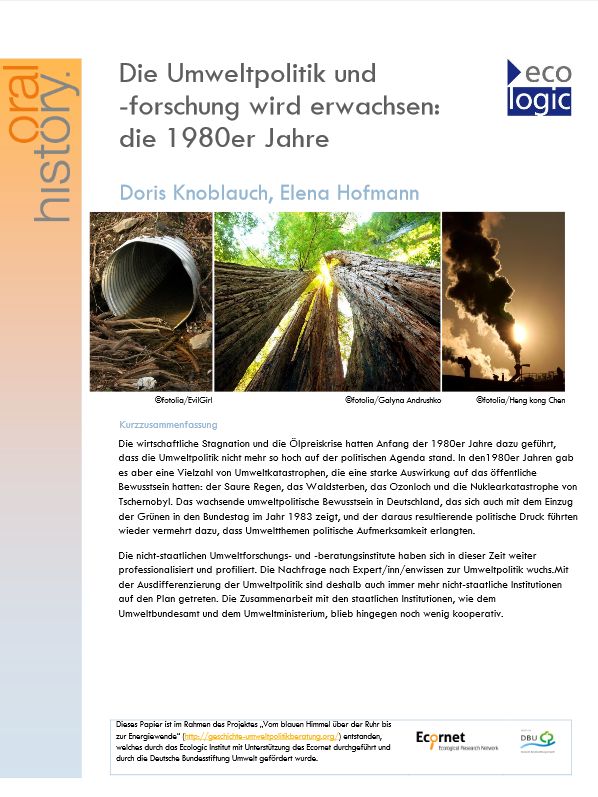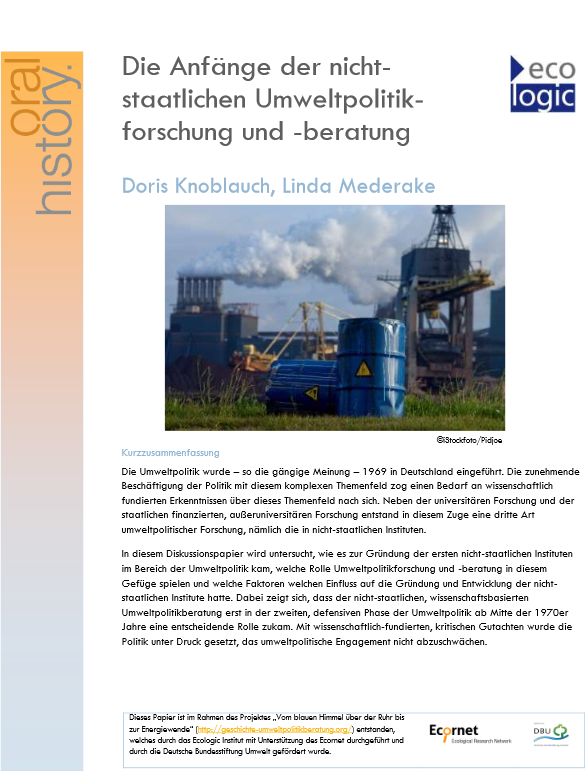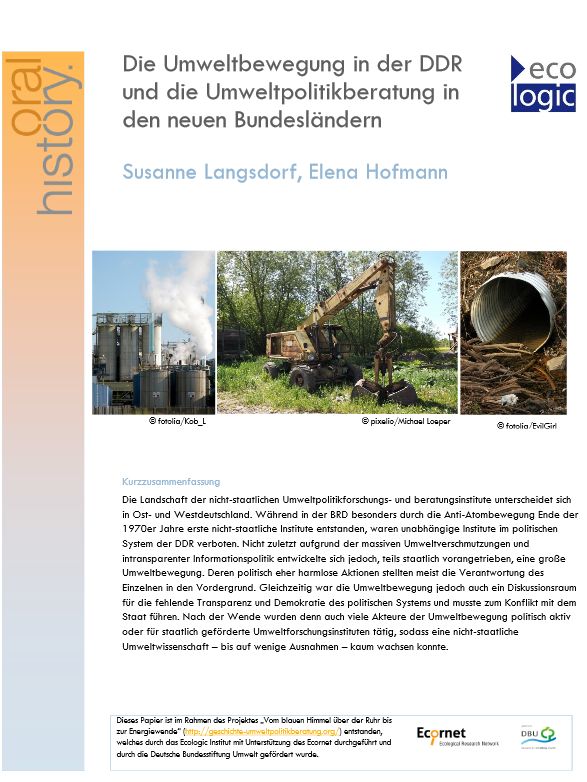
CFCs, Chernobyl, Brundtland, Kyoto, Nagoya: the Influence of Global Themes on Environmental Policy Research in Germany
- Event
- Date
-
- Location
- Berlin, Germany
- Speaker
The closing event of the discussion series "From the 'blue sky over the Ruhr' to the Energiewende" on 12 May 2014 had the guests Prof. Dr. Edda Müller (former vice chairwoman of the German Council for Sustainable Development), Dr. Hans-Joachim Ziesing (former department head at the German Institute for Economic Research) and Prof. Dr. Meinhard Schulz-Baldes (former Secretary General of the German Advisory Council on Global Change(GACGC)) talking about the relationship between global events and German environmental policy research. The most important insights were the surprisingly early international influence on German environmental policy and the strong independence of the German advisory councils for environmental policy.
Politicians taking the initiative and external pressure
Prof. Dr. Edda Müller emphasized that, contrary to common wisdom, it was the political system which had made the first step in establishing environmental policy in Germany. Created 1969 in the German Ministry of the Interior (MI) by chancellor Willy Brandt, the power center of environmental policy shifted towards the Federal Environmental Agency (FEA) in the mid-1970s. At that time, the FEA was subordinate to the MI. Prof. Müller worked for both institutions in this period. She explained that the FEA had considerable leeway in protecting the environment while the MI was occupied with the Red-Army-Faction terror. Furthermore, she emphasized the importance of the 1972 UN-conference on the environment in Stockholm for the creation of governmental institutions such as the German Advisory Council on the Environment or the FEA. According to Müller, the UN-conference had prompted various new national and international discussions on the environment in the run-up to the conference. Hence, the federal government felt the "pressure" to react to this international dynamic by creating environmental policy organs.
Ozone, CO2 and Stockholm vs. Rio
The three experts agreed that the truly global environmental topics only took the stage during the course of the 80s. The ozone hole in the atmosphere and the looming threat of runaway climate change were problems that were made vocal by the scientific community and which, as a result, became the topic of international conferences. The scientific councils Intergovernmental Panel on Climate Change (IPCC) and the German Enquete-Commission "Precaution for the protection of the environment" placed the global challenges at the center of the politicians’ and the public’s attention. Prof. Schulz-Baldes noted a further difference in the environmental policy discourse: The 1992 UN-conference in Rio, other than the Stockholm conference in 1971, next to the environmental aspect further laid focus on development. According to Schulz-Baldes, this had been a symbol of the increasing concern for the human component of climate change.
Climate science: clear problem, unclear solution?
The climate scientists' diagnosis was unequivocal: To prevent catastrophic consequences, the earth's average temperature was not allowed to rise more than 2 degrees. According to Prof. Schulz-Baldes, the idea of a "crash barrier" of 2 degrees originated from the GACGC, however, the international community wrongly understood this mark as a "goal". Yet, the message did not go unheard, and everybody was talking about what to do against climate change. However, the expert panel also concluded that the design of politically feasible instruments turned out to be far more challenging for scientists than the mere diagnosis. Dr. Ziesing spoke of a "great frustration" in the scientific community. Prof. Schulz-Baldes boiled it down to the statement "science does not make policy."
At the end, the experts discussed the following questions from the audience:
- Which influence did French activists exert on the anti-nuclear-protests in Wyhl?
- Is there a decisive knowledge gap between rich and poor countries at international negotiations?
- What sets Germany apart from other countries regarding its environmental advisory organs?





